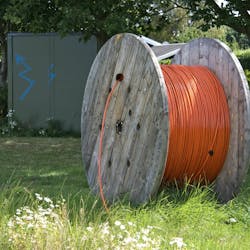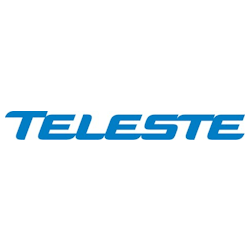At ANGA COM in Germany, RDK Management is sharing details about the adoption of RDK open source software used to power customer premises equipment (CPE) from video and broadband services providers worldwide. The theme is one of expansion: of devices deployed, access network types, and member companies.
"Service providers around the globe recognize that RDK gives them ultimate control over their software roadmaps and data within the connected home, across video, broadband and IoT connected devices," said Steve Heeb, president and general manager of RDK. "As such, there are now more than 50 million deployed devices powered by RDK software."
"On the broadband side, RDK has become the preferred software stack for broadband gateways from leading suppliers, and they are focused on providing RDK solutions across DOCSIS, DSL, and PON," Heeb said. "For video, the RDK App Framework and RDK Video Accelerator make it easier to develop and manage apps in a consistent way across RDK video devices. And, notably, RDK also provides a common method for service providers to leverage device management and 'big data' to improve broadband and video performance."
With more consolidations around the globe, many service providers are no longer tied to a single type of access network - DOCSIS, DSL, or EPON/GPON. In response, RDK is being expanded to work across all of them. Original equipment manufacturers (OEMs) including ARRIS (now part of CommScope), Humax, Sagemcom, and Technicolor are enabling satellite, telco, and cable operators to deploy RDK as their primary software stack on new broadband gateways.
Last fall, RDK unveiled a video app development program to let service providers use the RDK App Framework and SDK to build and manage their own solutions, or select a RDK pre-integrated app store solution such as the Metrological App Store. In addition, ARRIS recently announced the availability of the RDK Video Accelerator, based on the ARRIS VIP5202W UHD IP set-top, which provides an application development platform using the latest RDK version, App Framework and pre-integrated Metrological App Store.
Across both broadband and video, RDK is designed to provide operators with a common method to extract "big data" from CPE in the field, enabling them to apply machine learning (ML) data and artificial intelligence (AI) to improve the customer experience and network reliability. Operators are using RDK based tools to proactively optimize broadband gateways, video devices, and related cloud components, and to predict and resolve technical issues before they impact customers.
Globally, the number of RDK devices deployed is more than 50 million. Service providers across North America, Europe, Latin America, and Asia are in various stages of evaluation, testing, trials or deployment. Companies that have publicly announced deployment plans for RDK-based services include Comcast, Cox, J:COM, Liberty Global, Melita, NOS, NOWO, Rogers, Shaw, Tele Columbus, Vidéotron, and Vodafone (formerly Kabel Deutschland).
RDK is an open source software platform for the connected home that is designed to standardize core functions used in broadband, video, and IoT connected devices. It is intended to enable service providers to manage their devices; control their business models; and customize their apps, UIs and data analytics. For video, RDK provides a common method across differing chipsets and OEMs to manage video tuning, conditional access, DRM, stream management and diagnostics. For broadband, it includes common methods to manage routing, WiFi, DNS, device management, diagnostics, and IoT interfaces, such as Bluetooth, Thread and Zigbee. RDK software is available at no cost to RDK licensees, and RDK community member companies - of which there are now more than 400 - can contribute software changes and enhancements back to the community.





